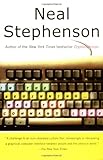I talk a lot about WordPress. I’ve developed websites since 1994, and WordPress is the single best tool for websites that I’ve found. The reasons are subtle and non-obvious; While it’s easy for people to learn (relatively), and thereby gives a small business a great way to communicate via the web without having a dedicated HTML jockey on staff, that’s not the main impact. The main impact is that it is Search Engine Catnip!
This first series of ScreenCasts I’ve made are a simple introduction to WordPress. Each is only 5 minutes, and they are just me voicing-over a tour of WordPress in a web browser. They’re bite-size and painless.
The second series will actually guide you into creating Posts and Pages, placing photos, embedding content from sites like YouTube, and so on.
Series One: Intro to WordPress
- Introduction to WordPress… this 5 minute video shows you some basic WordPress parts. Click here for the 1st Video on ScreenCast.com
- A quick look at editing a Post, and some different site designs with WordPress as the core publishing engine. 2nd Video on ScreenCast.com
- Basic parts of a WordPress blog on a mature site. Note that the last few words are cut off in this video. I said “…and that’s critically important to being found on the Search Engines. 3rd Video on ScreenCast.com
- Growing your site content and the impact on traffic and getting found. 4th Video on ScreenCast.com
[Click here for the next 3 in the series]
In later series, I’ll gradually introduce you in-depth to these features and concepts behind them… I’d like your opinion of these screencasts, please comment!
 In the Beginning…was the Command Line is a thin, non-fiction, humorous manifesto describing the drift from the clean, simple OS to the bloated, overly controlling, icon flaunting, UI driven OS. It was written and published online in 1999, when the Mac OS was at it’s worst and Windows was just achieving true digital blasphemy with its revolting browsers, monopolistic practices and bombastic bloatware. For windows users it was still pretty true until Windows 7 came out last year. Shortly after the online rant came the book. But the online version is still available here.
In the Beginning…was the Command Line is a thin, non-fiction, humorous manifesto describing the drift from the clean, simple OS to the bloated, overly controlling, icon flaunting, UI driven OS. It was written and published online in 1999, when the Mac OS was at it’s worst and Windows was just achieving true digital blasphemy with its revolting browsers, monopolistic practices and bombastic bloatware. For windows users it was still pretty true until Windows 7 came out last year. Shortly after the online rant came the book. But the online version is still available here.

